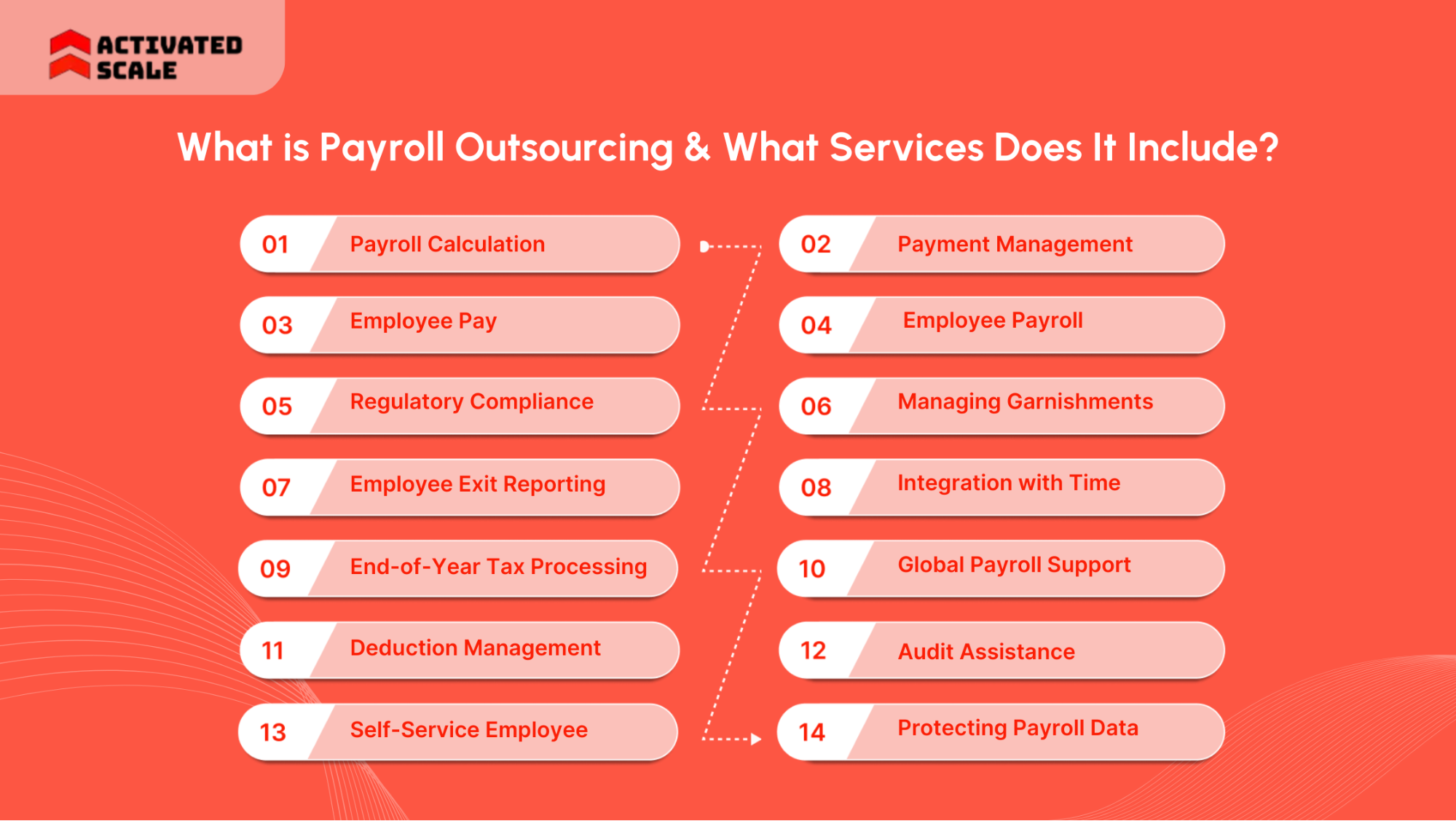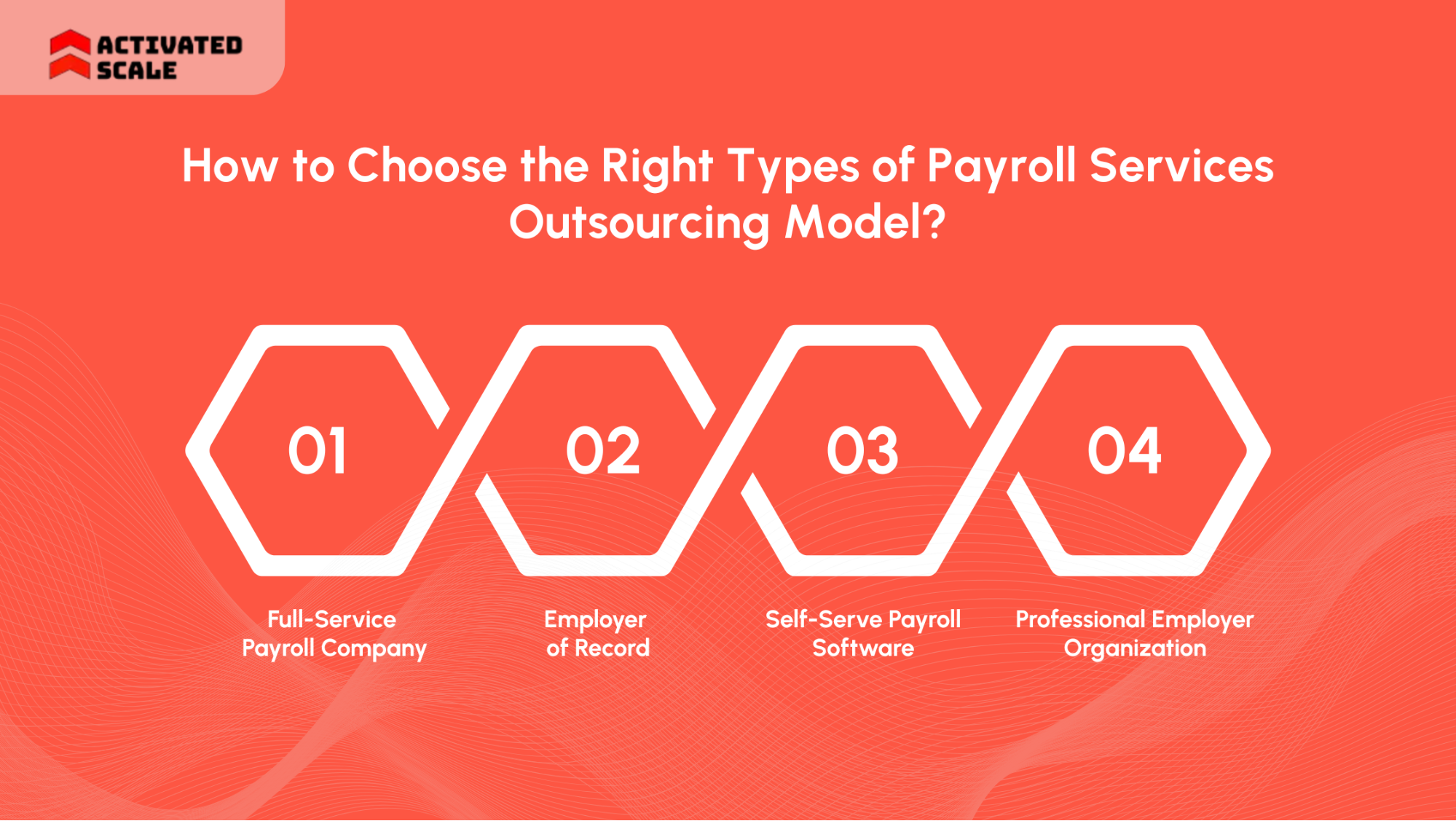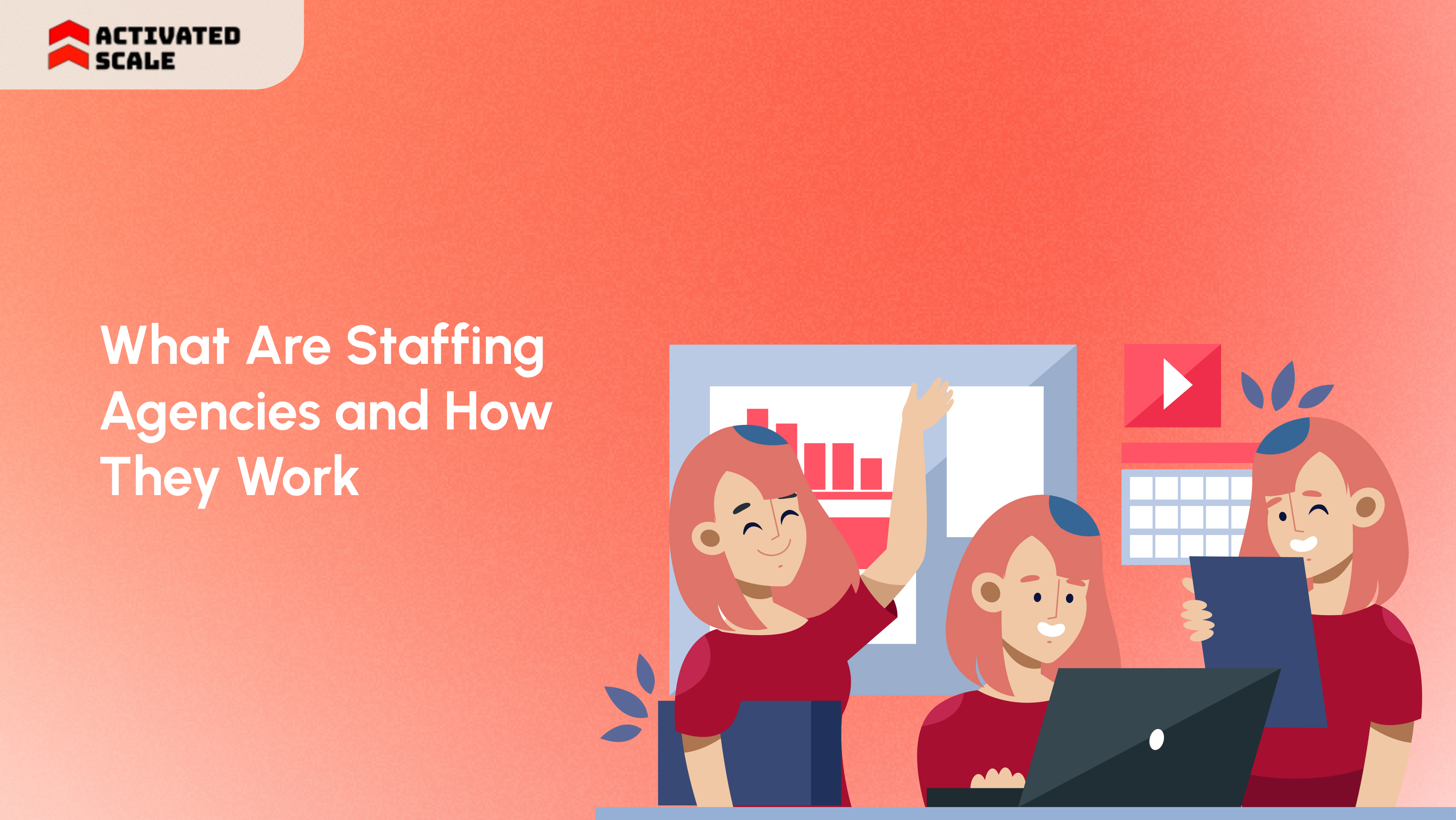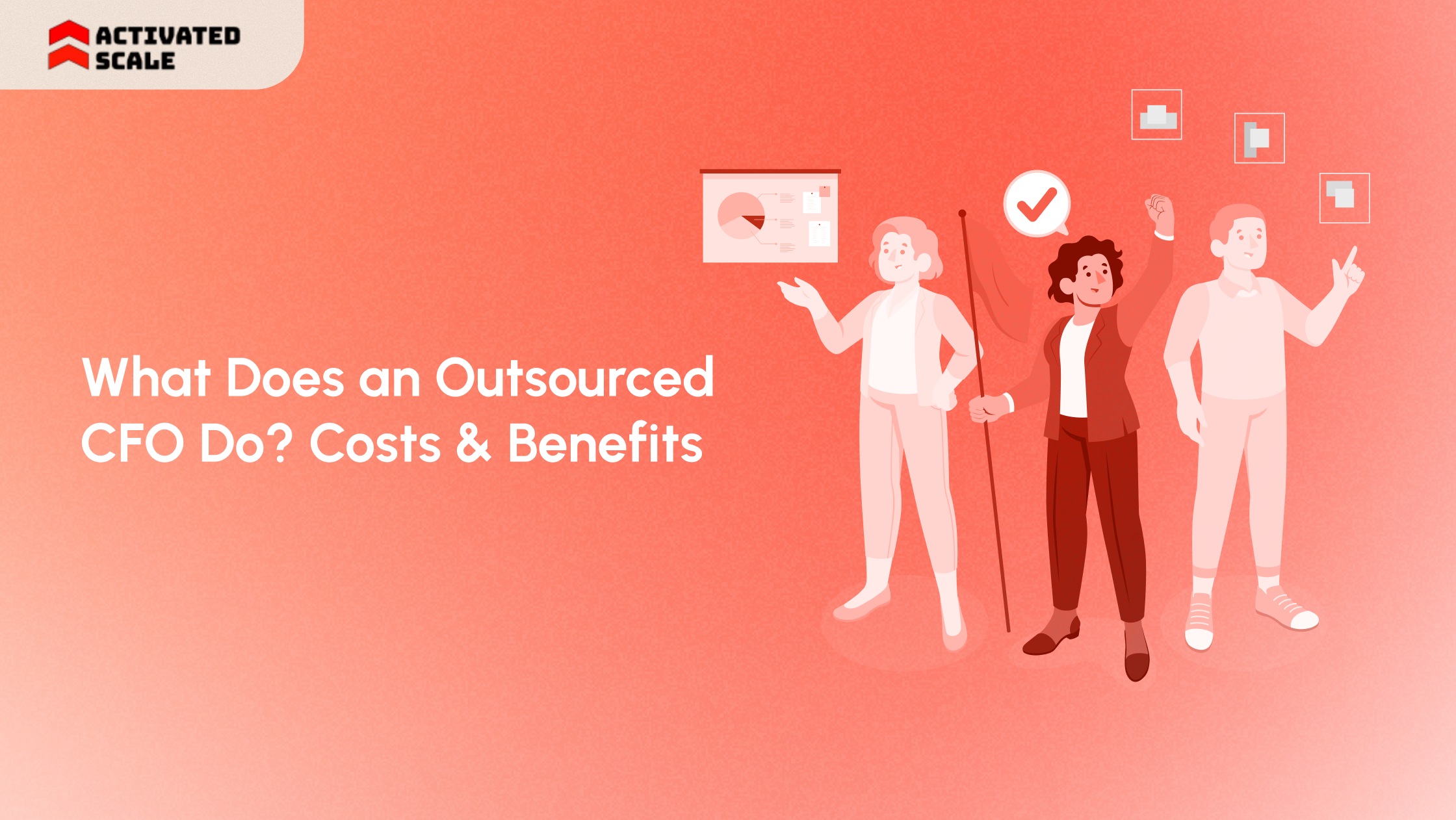Managing payroll in-house can be time-consuming, complex, and prone to costly errors. With continuously changing regulations and tax laws, staying compliant becomes a full-time job on its own.
This is where payroll outsourcing steps in as a smart business solution. If you're handing payroll over to a trusted provider, you can free up valuable time and decrease payroll errors.
However, you need to ensure that compliance is handled by experts. In this blog, we’ll understand the key benefits of payroll services outsourcing and how it works. You will also find out a way to decide whether to choose it or not based on the cost.
So, if you’re scaling your team or just looking for more efficiency, outsourcing payroll could be your best option.
At a Glance
- Payroll outsourcing helps companies save time and reduce compliance risk.
- Many growing and global teams lower payroll costs with the right outsourcing model.
- Leaders can choose from four options: Full-service, PEO, EOR, and self-serve software.
- Key benefits include higher efficiency, better accuracy, stronger security, and clearer reporting.
- Main risks involve less control, data privacy concerns, and unexpected extra fees.
- Outsourcing makes the most sense during rapid growth, rising complexity, or limited internal capacity.
- Smart buyers favor vendors with strong security, transparent pricing, and responsive support.
What is Payroll Outsourcing and What Services Does It Include?

Before investing in any external payroll solution, business leaders need a clear understanding of what payroll outsourcing actually involves.
Many assume it only covers paycheck processing, but the scope extends far beyond that. Outsourced payroll services have grown into a specialized service that merges compliance, automation, and workforce management expertise.
At its core, outsourcing payroll means hiring an external partner to manage the complete payroll cycle, from calculating wages to filing taxes.
This approach helps enterprises shift repetitive administrative work to professionals equipped with advanced knowledge.
Below are 14 key services typically included in outsourced payroll services:
- Payroll Calculation and Processing: Managing all aspects of employee pay, including base salary, overtime, bonuses, and applicable deductions.
- Tax Filing and Payment Management: Ensuring timely submission of federal, state, and local taxes while maintaining compliance with regulations.
- Employee Pay Distribution: Distributing payments through various methods, including direct deposit, checks, or pay cards.
- Maintaining Employee Payroll Records: Keeping accurate and up-to-date records for each employee, including personal details, tax forms, and banking information.
- Regulatory Compliance Oversight: Monitoring and adhering to applicable labor laws and tax regulations to avoid compliance risks.
- Managing Garnishments: Handling mandatory payroll deductions such as child support or tax levies as required by law.
- New Hire and Employee Exit Reporting: Processing necessary compliance paperwork for new employees and ensuring proper reporting for terminations.
- Integration with Time and Attendance Systems: Synchronizing payroll systems with time tracking software to ensure accurate pay based on hours worked.
- End-of-Year Tax Processing: Generating required year-end documents like W-2s, 1099s, and other tax-related reports.
- Global Payroll Support: Managing payroll for employees across multiple countries while ensuring compliance with local regulations.
- Deduction Management for Benefits and Retirement Plans: Administering employee benefit contributions, such as 401(k) and health insurance premiums, through payroll.
- Reporting and Audit Assistance: Providing detailed payroll reports for internal audits and compliance reviews.
- Self-Service Employee Access: Offering employees online access to their pay stubs, tax forms, and benefits information through a self-service portal.
- Protecting Payroll Data: Implementing security measures such as encryption and secure data storage to protect sensitive payroll information.
As you can see, benefits are worth introducing in your company, but a real question still arises. Should you move from in-house hiring to outsourcing?
Also Read: Understanding B2B Outside Sales: Core Differences and Steps to Succeed
In-House Payroll vs. Payroll Outsourcing
Every business leader faces the balance between control and convenience, and few decisions embody this like payroll. Handling it in-house offers direct oversight, while outsourcing promises expertise and time savings.
So, which is the smarter investment for your company? The answer lies in weighing what you gain against what you give up.
Since every business has unique needs, a variety of outsourcing models have emerged. So, what types of outsourced payroll solutions are available for your business?
How to Choose the Right Types of Payroll Services Outsourcing Model?

The model you choose for outsourced payroll service depends on your business’s specific needs, size, and the scope of services you require. Different outsourced payroll providers offer varying degrees of integration and support.
At least 31% of firms plan to delegate their tasks for payroll. So understanding each option can help simplify decision-making and improve overall payroll management.
Here are four types of payroll outsourcing solutions available, each catering to unique business requirements:
1. Full-Service Payroll Company
A full-service payroll provider offers a comprehensive range of services. It includes payroll processing, tax compliance, wage calculation, tax filings, and the generation of pay stubs.
Many full-service payroll companies also provide global coverage, helping businesses manage payroll across multiple countries.
- Who It’s Best For: Businesses seeking comprehensive payroll services and compliance management, especially if they operate globally.
2. Employer of Record (EOR)
An EOR serves as the legal employer for your staff in a specific country or region, managing all payroll, taxes, and benefits.
The EOR simplifies global hiring by allowing businesses to hire employees in other countries without the need to establish local entities.
- Who It’s Best For: Companies hiring internationally without the need to open local offices or establish legal entities.
3. Self-Serve Payroll Software
Self-serve payroll software allows businesses to manage payroll internally using software that automates key processes.
- Who It’s Best For: Small to mid-sized businesses looking for affordable payroll solutions with the ability to manage payroll in-house.
4. Professional Employer Organization (PEO)
A PEO acts as a co-employer, providing a combination of payroll, HR services, benefits management, compliance, and risk management.
PEO also manages employee benefits, insurance claims, and state-specific compliance.
- Who It’s Best For: Businesses of all sizes looking for payroll services along with integrated HR and benefits management.
Let Activated Scale handle the complexity, compliance, and data security so you can focus on what truly matters: Growing your business.
Looking for an efficient way to manage your sales, too? Activate Scale’s Fractional Sales Leadership services provide the right sales talent who can share their expertise to stay ahead of the competition.
Outsourcing payroll comes with several undeniable benefits. Businesses gain access to expert compliance, reduced administrative work, and improved accuracy. But while the advantages are clear, the risks are real.
Is Payroll Outsourcing Your Strategic Advantage or a Hidden Risk?
What if you could reclaim dozens of hours spent on tax filings, payslips, and year-end reports? Payroll services outsourcing makes this possible, offering a tempting path to greater efficiency.
However, this shift also means handing over a critical, sensitive function to an outside partner. Is the gain in productivity worth the potential loss of direct control?
Let's understand it from the table below:
With this balanced view of advantages and drawbacks, you might be wondering: "Is this the right move for my company now?"
The answer often lies in recognizing when and how to outsource clearly, which clearly outweighs the risks for your unique business.
Read Also: Understanding How Outsourcing B2B Appointment Setting Can Help Your Business
Is It Time to Outsource Your Payroll?

While outsourcing payroll offers transformative benefits, its true value lies under the right conditions. Making the switch at the wrong time can be a costly misstep.
This section will help you pinpoint the exact moment for your business. We'll analyze the key indicators to determine if outsourcing is your most logical next step:
1. Rapid Growth or Complexity
As your business expands, managing payroll internally can quickly become cumbersome. When you add employees across different locations or states, compliance can overwhelm your HR team.
57% of businesses claimed that outsourced payroll services to free up their team's time and concentrate on essential, revenue-generating work. So you gain access to experts who are reducing the burden on your internal team.
2. Limited In-House Resources
If your HR or finance department is under-resourced, outsourcing payroll can free up internal resources for more strategic initiatives.
A payroll outsourcing provider takes over the heavy lifting, ensuring compliance and reducing administrative workload.
3. Cost-Benefit Analysis
Before making the switch to outsourcing payroll, it’s important to conduct a thorough cost comparison. Consider both the direct costs of maintaining an in-house payroll system and the indirect savings.
Often, outsourcing payroll is more cost-effective, especially for businesses that don’t have the resources to invest in dedicated payroll departments. So, compare these costs to identify the most economical solution for your business.
4. Regulatory Burden
If your business operates in a heavily regulated industry, such as government contracting, a payroll processing outsourcing firm can be an invaluable tool for ensuring compliance.
A specialized payroll provider will handle these regulatory complexities on your behalf, keeping your business safe from legal pitfalls.
5. Vendor Evaluation
Once you’ve decided that outsourcing payroll makes sense for your business, it’s time to evaluate potential providers. When choosing a payroll outsourcing partner, consider the following key factors:
- Security: Make sure the provider uses secure systems, encryption, and complies with data protection laws. Protecting sensitive employee data is critical.
- System Reliability: Ensure the provider offers uptime guarantees and disaster recovery plans to avoid payroll disruptions.
- Tax Expertise: Verify that the provider is up-to-date with tax laws and regularly updates their tax tables.
- Track Record: Look for a provider with a proven history of managing payroll efficiently. A stable provider with a strong client base is usually a safer choice.
- Customer Service: Assess the quality of customer support, ensuring responsive service with dedicated account representatives to resolve issues quickly.
- Pricing Structure: Request a clear breakdown of all costs, including any hidden fees for reports, integrations, or special payroll runs.
Looking to strengthen your revenue operations while cutting overhead costs? Activated Scale’s Fractional Selling service helps enterprises like yours manage expansion efficiently, without hiring full-time sales executives.
At this stage, you’ve seen how outsourced payroll services can support business growth and reduce complexity. Now, let's talk about the expected expenses.
How Much Does Payroll Outsourcing Cost?
Most payroll outsourcing providers charge a monthly base rate of $50 to $80, plus $6 to $12 for each employee. With 20 employees, you’re looking at roughly $170 to $320 per month, which comes to $2,040 to $3,840 per year.
If you go with payroll software instead, pricing usually sits between $6 and $22 per employee, often without a base fee.
For the same 20-person team, the cost typically ranges from $120 to $440 each month, or $1,440 to $5,200 a year.
Remember that making the right move requires aligning strategy, scalability, and trust in your partners. So, while choosing an outsourced company, do not forget about the charges!
Wrapping Up
Payroll outsourcing enables you to reclaim focus on your core business. This shows a vital shift in how modern businesses view this function.
Rather than seeing payroll as a mere administrative task, leadership recognizes it as a prime candidate for delegation. This liberation allows management and staff to concentrate on activities that directly drive growth.
Ultimately, this data confirms that it is a strategic one, deliberately chosen to sharpen the company's focus on its market objectives.
Need to scale your sales function with the same precision as your payroll operations? Activate your growth with the Contract-to-Hire Sales Recruiting service from Activated Scale.
Our leadership experts help enterprises accelerate performance without long hiring cycles. Book a call today with Activated Scale to see how we can help your sales team perform smarter and sell faster.
FAQs
1. What makes payroll services outsourcing beneficial for large enterprises?
It reduces administrative strain, enhances compliance accuracy, and provides global scalability without hiring additional payroll staff.
2. How secure is payroll outsourcing?
Reputable providers use encryption, multi-layer authentication, and comply with standards like GDPR to protect sensitive data.
3. Is payroll services outsourcing suitable for startups?
Yes. Startups benefit from predictable costs, reduced errors, and immediate access to compliance expertise without expanding their teams.
4. How do I choose the right outsourced payroll partner?
Evaluate providers based on reliability, tax expertise, transparent pricing, customer service, and system integrations.
The Ultimate Guide to Hiring a Salesperson!
Get the step-by-step guide to hiring, onboarding, and ensuring success!
_edi.png)




